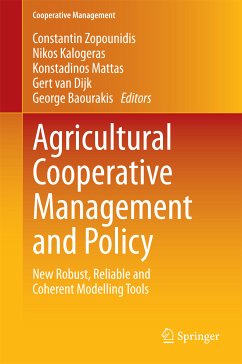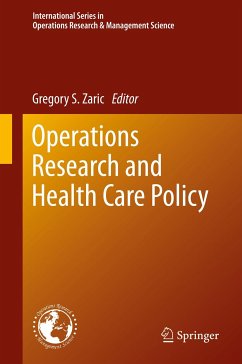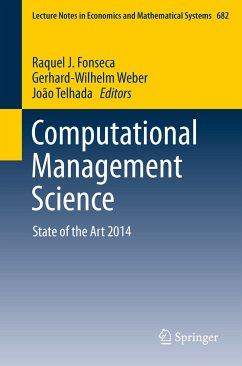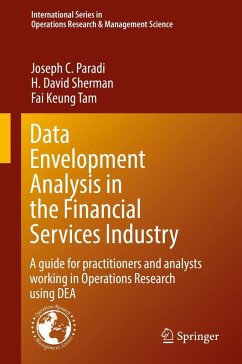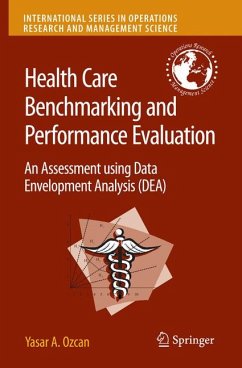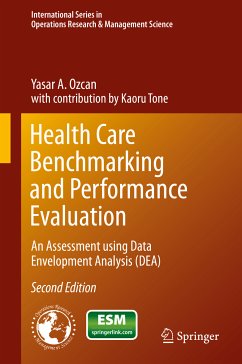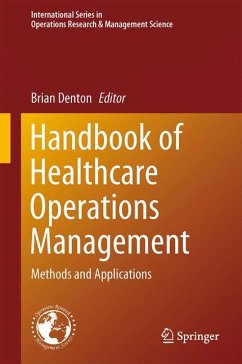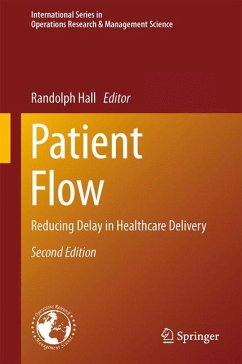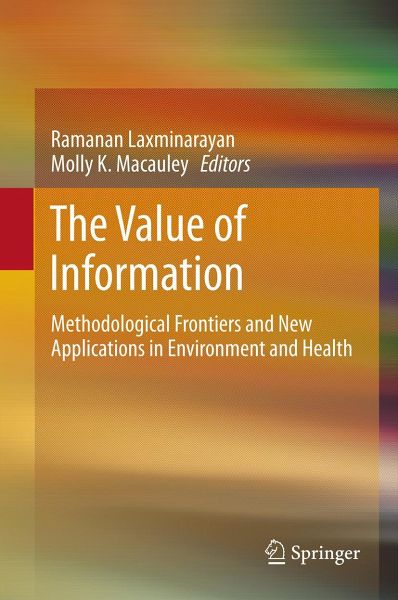
The Value of Information (eBook, PDF)
Methodological Frontiers and New Applications in Environment and Health
Redaktion: Laxminarayan, Ramanan; Macauley, Molly K.
Versandkostenfrei!
Sofort per Download lieferbar
72,95 €
inkl. MwSt.
Weitere Ausgaben:

PAYBACK Punkte
36 °P sammeln!
The book examines applications in two disparate fields linked by the importance of valuing information: public health and space. Researchers in the health field have developed some of the most innovative methodologies for valuing information, used to help determine, for example, the value of diagnostics in informing patient treatment decisions. In the field of space, recent applications of value-of-information methods are critical for informing decisions on investment in satellites that collect data about air quality, fresh water supplies, climate and other natural and environmental resources ...
The book examines applications in two disparate fields linked by the importance of valuing information: public health and space. Researchers in the health field have developed some of the most innovative methodologies for valuing information, used to help determine, for example, the value of diagnostics in informing patient treatment decisions. In the field of space, recent applications of value-of-information methods are critical for informing decisions on investment in satellites that collect data about air quality, fresh water supplies, climate and other natural and environmental resources affecting global health and quality of life.
Dieser Download kann aus rechtlichen Gründen nur mit Rechnungsadresse in A, B, BG, CY, CZ, D, DK, EW, E, FIN, F, GR, HR, H, IRL, I, LT, L, LR, M, NL, PL, P, R, S, SLO, SK ausgeliefert werden.




